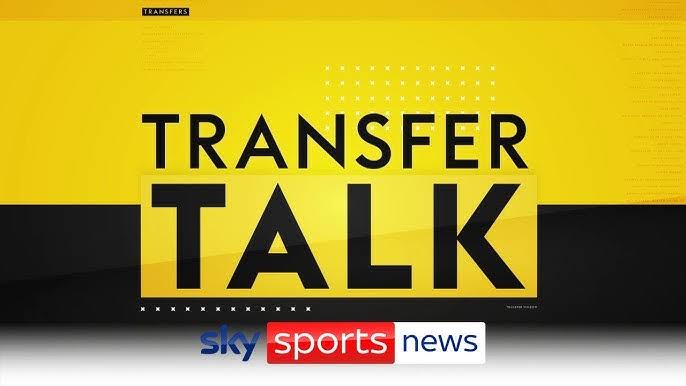Liverpool’s Harvey Elliott: A Transfer Saga That Could Define His Career

In the ever-evolving landscape of modern football, where player movements can reshape entire club philosophies and career trajectories, few stories capture the complexities of contemporary transfer dynamics quite like Harvey Elliott’s potential departure from Liverpool. The 22-year-old midfielder, once heralded as one of England’s most promising young talents, finds himself at a crossroads that could define not only his immediate future but the entire arc of his professional career.
Recent developments have thrust Elliott into the spotlight as RB Leipzig, the ambitious Bundesliga outfit known for their progressive approach to youth development and tactical innovation, have formally entered negotiations with Liverpool for the midfielder’s services. The German club’s interest isn’t merely speculative; they have tabled a concrete four-year contract proposal, signaling their serious intent to secure Elliott’s signature as a cornerstone of their future plans.
The negotiations have reportedly accelerated beyond preliminary discussions, with formal talks now taking place between Liverpool’s hierarchy and Leipzig’s sporting department. This progression suggests that both clubs view a potential deal as mutually beneficial, despite the inevitable complexities surrounding the valuation of a player who represents significant untapped potential.
Leipzig’s approach reflects their broader strategy of identifying and nurturing young talent who can contribute immediately while possessing the capacity for substantial development. In Elliott, they see not just a player who could fill an immediate gap, but someone who embodies the profile that has made their recruitment model so successful in recent years.
Perhaps the most intriguing aspect of Leipzig’s pursuit is the involvement of Jurgen Klopp, the former Liverpool manager who has transitioned into his new role as Red Bull’s global football director. Klopp’s influence in these negotiations cannot be overstated, as he brings intimate knowledge of Elliott’s capabilities, temperament, and potential trajectory.
During his tenure at Anfield, Klopp worked closely with Elliott, nurturing the young midfielder through various stages of his development. The German tactician witnessed firsthand Elliott’s technical abilities, his tactical intelligence, and perhaps most importantly, his mental resilience in high-pressure situations. This insider knowledge makes Klopp uniquely qualified to assess whether Elliott would thrive in Leipzig’s system and the Bundesliga’s demanding environment.
Klopp’s personal involvement in convincing Elliott to consider the move adds a layer of credibility to Leipzig’s proposal that extends beyond mere financial incentives. When a manager of Klopp’s stature and experience advocates for a particular career path, young players tend to listen intently. His endorsement of Leipzig as the ideal next step for Elliott’s development carries weight that transcends typical transfer negotiations
From Elliott’s standpoint, the appeal of Leipzig’s offer extends far beyond the four-year contract security. The fundamental driver behind his openness to leaving Liverpool is his desire for consistent first-team football – a commodity that has remained elusive at Anfield despite his undeniable talent and potential.
Last season’s statistics tell a story of limited opportunities despite impressive performances when called upon. Elliott managed 18 Premier League appearances, a figure that, while respectable, doesn’t reflect the regular starting role that a player of his caliber deserves at this stage of his career. These appearances came in various capacities – sometimes as a creative midfielder pulling strings from deeper positions, other times deployed as a right-sided option providing width and attacking impetus.
The challenge for any young player at a club of Liverpool’s stature is breaking into a team where every position is contested by world-class talent. While this environment can accelerate development through training alongside elite players, it can also frustrate ambitious young professionals who feel ready to shoulder greater responsibility and showcase their abilities on a consistent basis.
Elliott’s situation represents a common dilemma in modern football: the balance between remaining at a prestigious club with limited opportunities versus moving to a platform where regular playing time can facilitate continued development. At 22, Elliott is at a crucial juncture where regular competitive minutes could significantly impact his long-term trajectory.
Leipzig’s pursuit of Elliott is intrinsically linked to their expected loss of Xavi Simons, the talented Dutch midfielder who appears destined for a £60 million move to Chelsea. This connection illustrates how modern transfer markets operate as interconnected webs where one movement can trigger multiple subsequent transactions.
Simons’ departure represents both a significant financial windfall for Leipzig and a tactical void that needs addressing. The Dutch international’s contributions during his time in Germany have been substantial, and replacing his creativity, vision, and goal threat requires careful consideration of both immediate needs and long-term potential.
In Elliott, Leipzig’s recruitment team see qualities that align closely with what Simons brought to their system. Both players possess exceptional technical ability, the vision to unlock tight defenses, and the versatility to operate in multiple attacking positions. This similarity in profile suggests that Leipzig view Elliott not merely as a replacement but as a potential upgrade – a player whose development trajectory could eventually surpass what Simons achieved during his tenure.
The timing of these interconnected moves also highlights the strategic planning that characterizes successful clubs in the modern era. Rather than scrambling to replace a departing star, Leipzig have identified their target well in advance, allowing them to negotiate from a position of strength rather than desperation.
The financial aspects of Elliott’s potential transfer reveal fascinating insights into how clubs value young talent in today’s market. Liverpool’s asking price reflects their assessment of Elliott’s current ability and future potential, with reports suggesting two distinct valuations depending on the structure of any potential deal.
The Merseyside club reportedly wants £47 million if a buy-back clause is included in any agreement, or £56 million for a permanent transfer without such protections. These figures demonstrate Liverpool’s recognition of Elliott’s value while also acknowledging the reality that they may struggle to provide him with the regular playing time his development requires.
Leipzig’s initial valuation of closer to £26 million illustrates the gap that often exists between selling and buying clubs in transfer negotiations. This disparity isn’t unusual in modern football, where clubs must balance their desire to retain talented players against the practical realities of squad management and player satisfaction.
The suggestion that a compromise figure of around £40 million could be reached demonstrates the pragmatic approach both clubs are taking toward negotiations. This middle ground would allow Liverpool to recoup significant funds while enabling Leipzig to secure their target at a price that reflects both current ability and future potential
Understanding Elliott’s potential impact at Leipzig requires examining how his skillset aligns with the tactical philosophy that has made the German club so successful in recent years. Leipzig’s approach under various managers has consistently emphasized high pressing, quick transitions, and technical proficiency in all areas of the pitch.
Elliott’s technical abilities make him an ideal fit for this system. His first touch, passing range, and ability to operate in tight spaces align perfectly with Leipzig’s preference for players who can maintain possession under pressure while also contributing to their aggressive pressing game. His versatility – demonstrated through his ability to play as both a creative midfielder and right-sided attacking option – provides tactical flexibility that modern coaches value highly.
Manager Ole Werner and sporting director Marcel Schafer’s direct conversations with Elliott reportedly centered on his potential role as a key figure in a new-look attacking lineup. This positioning suggests that Leipzig view Elliott not as a squad player fighting for opportunities, but as a central component of their tactical evolution.
The prospect of being integral to Leipzig’s attacking plans represents exactly what Elliott has been seeking at Liverpool – a chance to take ownership of his development and showcase his capabilities in a system designed to maximize his strengths.
Elliott’s impressive performances for England’s under-21 team during their European Championship triumph provide additional context for his career decisions. His contributions to that tournament victory demonstrated his ability to perform on big stages and handle the pressure associated with representing his country.
This international experience adds another dimension to Leipzig’s pursuit. In the Bundesliga, Elliott would likely face consistent high-level competition that could accelerate his development toward senior England recognition. The German league’s reputation for developing young talent and providing a platform for international breakthrough makes it an attractive destination for ambitious English players.
The timing of this potential move also aligns well with Elliott’s international aspirations. At 22, he has several years to establish himself as a regular starter at club level before the next major international tournament, providing a clear pathway for his ambitions at both club and country level.
Elliott’s potential move would place him within a growing tradition of young English players seeking development opportunities in the Bundesliga. The German league’s reputation for nurturing talent, combined with its competitive intensity and tactical sophistication, has made it an increasingly popular destination for ambitious young players.
This trend reflects a broader shift in how English players view their career development. Rather than remaining within the familiar confines of the Premier League system, more players are recognizing the benefits of experiencing different football cultures and tactical approaches. The success of players who have made similar moves provides encouraging precedent for Elliott’s potential German adventure.
Leipzig’s track record with young talent development adds credibility to their promises of regular playing time and continued growth. Their systematic approach to player development, combined with their participation in European competitions, provides exactly the platform that ambitious young players seek.
Elliott’s situation occurs within a broader transfer market characterized by inflated valuations, complex deal structures, and the increasing importance of player power in determining career trajectories. His case illustrates how talented young players are no longer content to wait indefinitely for opportunities at prestigious clubs.
This shift reflects changing dynamics in modern football, where players and their representatives are increasingly sophisticated in managing career development. The willingness to leave comfortable situations in pursuit of regular playing time demonstrates a mature understanding of what drives career progression in contemporary football.
The involvement of buy-back clauses in transfer negotiations also reflects the evolving nature of player transactions. These mechanisms allow selling clubs to retain some connection to players they believe might outgrow their new destinations, while providing buying clubs with the security that they won’t lose assets without fair compensation.
The resolution of Elliott’s transfer situation could have far-reaching implications extending well beyond the immediate impact on Liverpool and Leipzig. For Elliott personally, the decision represents a career-defining moment that could determine whether he fulfills his considerable potential or becomes another cautionary tale of a promising player who never quite reached his ceiling.
A successful move to Leipzig could provide the platform for Elliott to develop into the player many believe he can become – a creative midfielder capable of competing at the highest levels of international football. The regular playing time and tactical development opportunities available in Germany could accelerate his progress in ways that remaining at Liverpool might not.
Conversely, remaining at Liverpool would require Elliott to fight for his place in an incredibly competitive squad, with no guarantees of the regular football his development requires. While the prestige and quality of his teammates at Anfield are undeniable, the practical realities of squad rotation and established hierarchies could continue to limit his opportunities.
For Leipzig, securing Elliott would represent a significant coup in their ongoing efforts to establish themselves among Europe’s elite clubs. His addition would not only fill the immediate gap left by Simons’ departure but could also provide the creative spark needed to take their tactical evolution to the next level.
As negotiations continue and deadlines approach, Harvey Elliott’s transfer saga represents more than just another player movement in football’s endless carousel. It embodies the choices facing talented young players in an era where traditional loyalties are balanced against practical career considerations.
The involvement of figures like Jurgen Klopp, the financial complexities of modern transfers, and the tactical considerations that drive club decisions all contribute to a narrative that encapsulates the modern game’s sophistication. Whether Elliott ultimately chooses the security and prestige of remaining at Liverpool or the opportunity and adventure of joining Leipzig in Germany, his decision will likely influence how other young players approach similar crossroads in their careers.
The outcome of this transfer saga will be watched closely throughout the football world, not just for its immediate impact on the clubs involved, but for what it reveals about the evolving relationship between talent, ambition, and opportunity in contemporary football. In many ways, Elliott’s choice represents a microcosm of the broader challenges facing the modern game as it balances tradition with innovation, loyalty with ambition, and potential with reality.















